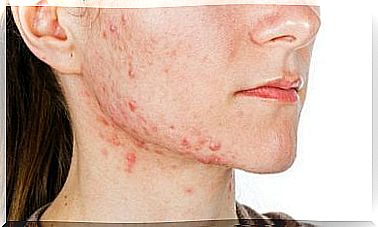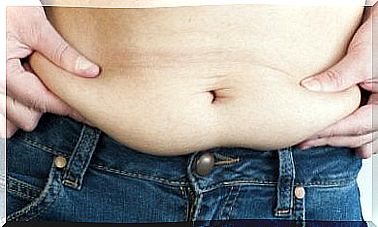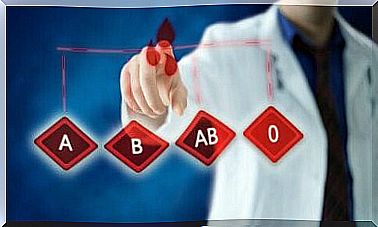Antidepressants And Alcohol: What Results From Combining Them?
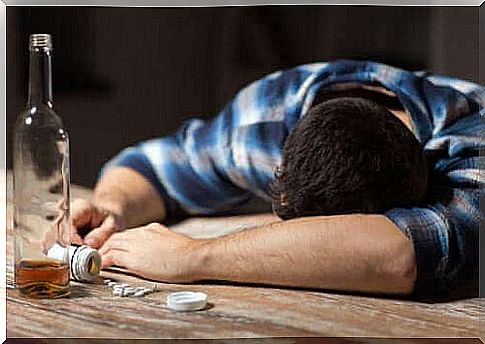
It is not entirely clear what happens when we combine antidepressants and alcohol. The interactions between them often depend on the amount of alcohol consumed or the type of antidepressant.
Many people combine antidepressants and alcohol without realizing that this combination can have serious health consequences.
In addition, 15% of people who feel warm from affective disorders develop alcohol dependence, which makes their situation even worse.
What are antidepressants?
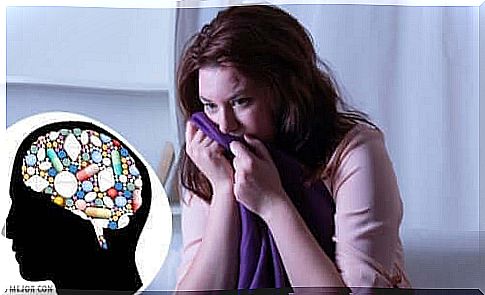
Antidepressants are a well-known treatment option for depression, a condition that affects 15% of the population.
Our body contains substances called neurotransmitters that transmit signals. One of them – serotonin – regulates the mood, and its deficiency leads to the development of depression. However, it is not the only neurotransmitter that is important in this condition.
Therefore, antidepressants aim to increase the concentration of these neurotransmitters in the body, thereby reversing this pathological mood.
There are different types of antidepressants. They include, among others:
- Selective Serotonin Reuptake Inhibitors (SSRIs).
- Serotonin Norepinephrine Reuptake Inhibitors (SNRIs).
- Atypical antidepressants.
- Tricyclic antidepressants.
- Monoamine oxidase inhibitors (MAOIs).
What is their action?
Although antidepressants have different mechanisms of action, all of them have the same purpose. The side effects associated with their use include, among others:
- Fatigue and sleepiness.
- Nausea.
- Insomnia.
- Dry mouth.
- Blurred vision.
- Constipation.
- Agitation, nervousness, restlessness.
Antidepressants and Alcohol: The Dangers of Combining Them
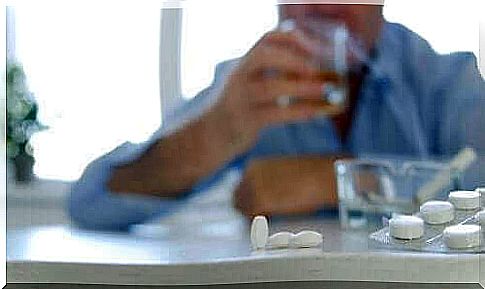
Experts do not know the exact interactions between antidepressants and alcohol. Moreover, they often depend on the amount of alcohol consumed and the type of antidepressants being taken.
For example, selective serotonin reuptake inhibitors increase the concentration of this neurotransmitter, preventing its reuptake. At the same time, alcohol raises serotonin levels, although it does so only temporarily.
Thus, a person who takes antidepressants and alcohol is at risk of having too much serotonin in the brain. As a result, she may develop serotonin syndrome.
What is serotonin syndrome?
As we already mentioned, serotonin syndrome is a disorder that occurs due to an excess of serotonin. However, its severity is very variable and depends on the cause.
Patients with serotonin syndrome experience nervousness, agitation, high blood pressure, muscle spasms, and diarrhea. What’s more, in the most severe cases, it may even endanger the patient’s life.
Conversely, if alcohol consumption is chronic and long-lasting, it can lead to low serotonin levels. Why? Because our body gets used to the presence of psychoactive substances thanks to a phenomenon called habituation.
Thus, when we get used to alcohol consumption, depressive symptoms may appear as the level of available serotonin decreases. In addition, if the person is also taking antidepressants, their effectiveness will decline.
Effects of combining antidepressants and alcohol
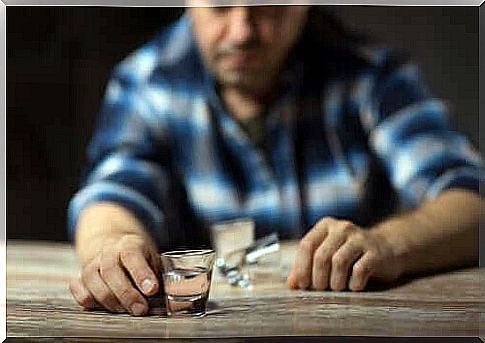
As a result of such a combination of these substances, the side effects of antidepressants are worsened. Some examples include:
- Worsening of Depressive State: Unfortunately, drinking alcohol can reduce the effects of antidepressants, making it more difficult to treat symptoms.
- Reduced cognitive activity: As we know very well, alcohol affects coordination, thinking and reaction time. Thus, if both substances are combined, the effects of antidepressants on the central nervous system will worsen the effects of alcohol consumption.
- Sedative effects: Some antidepressants can cause the drowsiness that is also characteristic of alcohol. Therefore, when a person takes both at the same time, the sedative effect may become even stronger. Be especially careful when, for example, you are driving a car.
- Risk of death : This is obviously the biggest consequence of combining antidepressants and alcohol. As we explained above, it appears as a result of serious cases of serotonin syndrome.
Summary
So you see, mixing antidepressants and alcohol together can have serious consequences.
Therefore, before starting treatment with this type of drug, you should talk to your doctor about your alcohol consumption, especially if you have any problems with alcohol consumption. Otherwise, you have to deal with extremely serious consequences.

